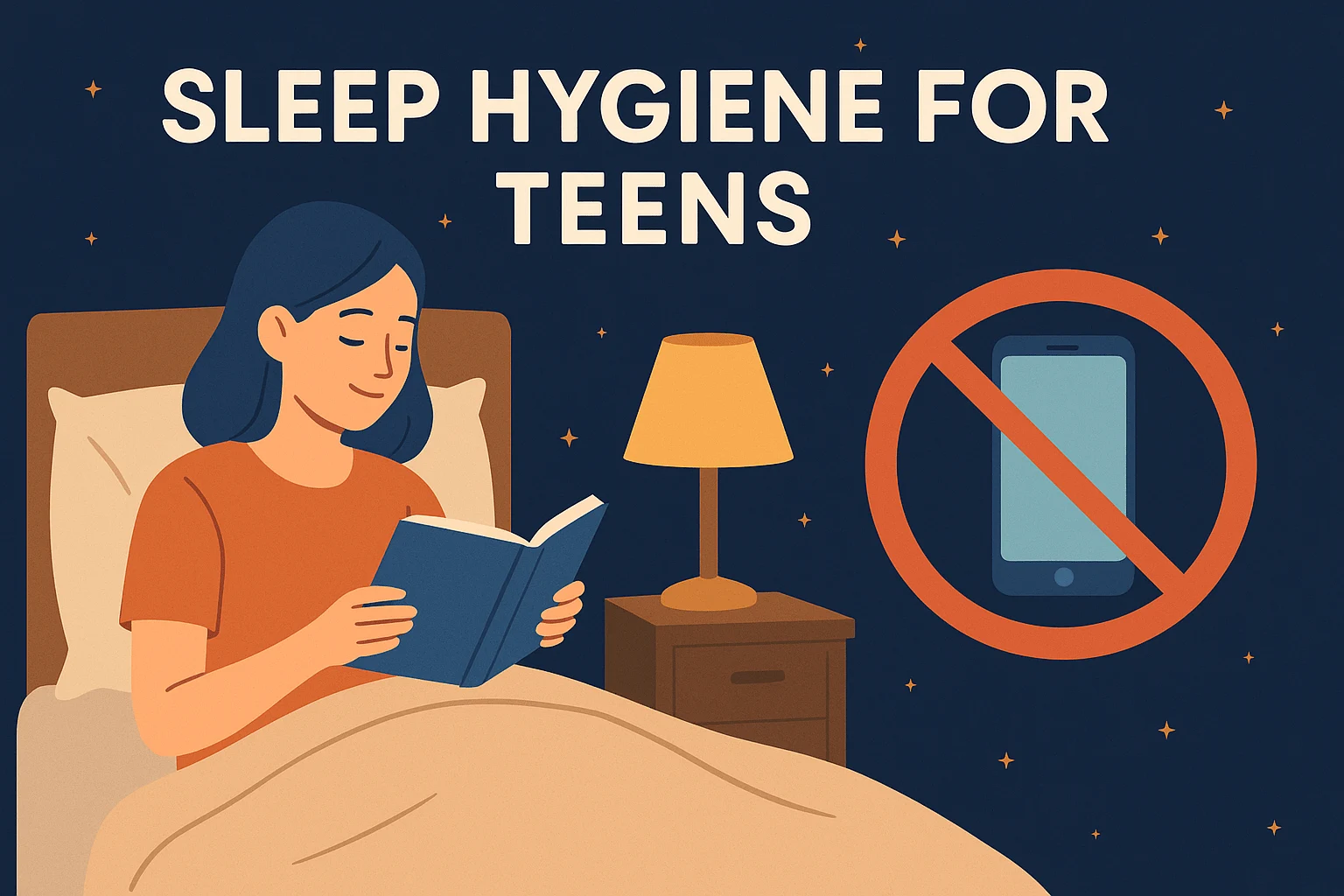Homework deadlines. Group chats buzzing past midnight. Early school alarms.
For many teens, getting enough sleep feels impossible — and that’s why sleep hygiene for teens is so important. Without healthy habits, the effects show up fast in mood, focus, and grades.
Research shows teenagers need 8–10 hours of sleep each night to support healthy growth, brain development, and emotional balance. But most get far less. A big reason? Puberty shifts the body’s internal clock, making teens naturally feel awake later at night — even though school still starts early. Add in sports, social life, and late-night phone scrolling, and it’s easy to fall into a cycle of chronic tiredness.
In this guide, we’ll look at nine healthy sleep habits for teenagers that actually work — no strict “bed by 8 p.m.” rules, just doable steps that fit into a busy teen schedule.
Why Sleep Hygiene Is Different for Teens

Teens aren’t simply “choosing” to stay up late — their biology makes it harder to fall asleep early.
During puberty, the body clock (circadian rhythm) naturally shifts forward by about one to two hours. A bedtime that felt natural at 9:30 in childhood might now feel impossible until 11:00 or later. This change is called a delayed sleep phase — and it’s completely normal.
The problem? School start times, early practices, and morning responsibilities haven’t shifted with it. That means many teens end up cutting their sleep short on school nights and trying to “catch up” on weekends — which can make it even harder to reset their schedule.
Poor-quality sleep can also affect:
- Mood and mental health – raising the risk of irritability, anxiety, and depression
- Memory and learning – making it harder to focus and remember what you’ve studied
- Physical health – slowing growth, weakening immunity, and delaying recovery from sports
Add in late-night screen time, caffeine, and homework overload, and it’s clear why teens need tailored strategies — not just generic adult sleep advice.
Now that you know why teen sleep is different, let’s look at practical ways to make it better.
Sleep Hygiene for Teens: 9 Habits to Improve Sleep
Good sleep doesn’t just happen — it’s the result of small, consistent habits that signal to your body, “It’s time to rest.” These nine habits are simple enough to fit into a busy life, but powerful enough to improve your sleep within weeks.
1. Keep a Consistent Sleep Schedule
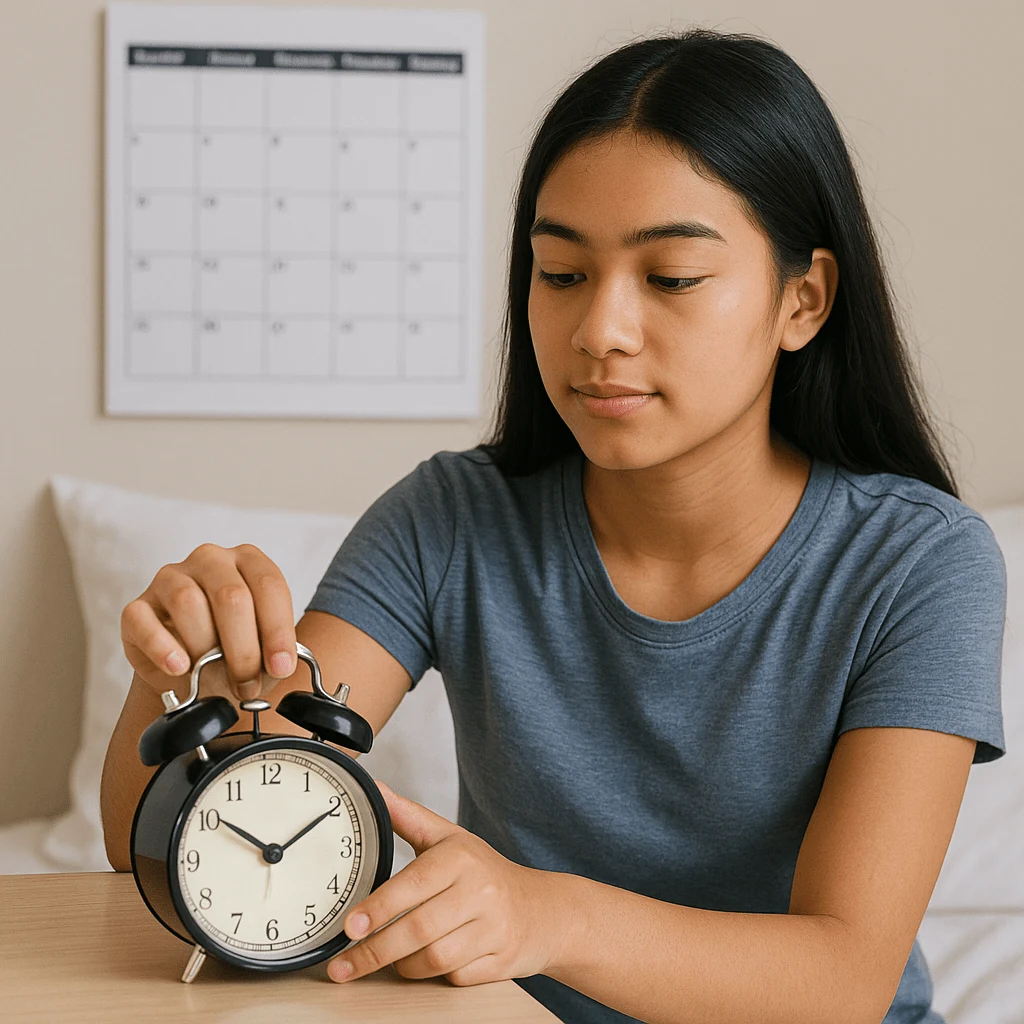
Go to bed and wake up at roughly the same time every day — yes, even on weekends. Try to keep weekend wake-up times within one hour of school days so your body clock stays on track.
2. Create a Short Wind-Down Routine
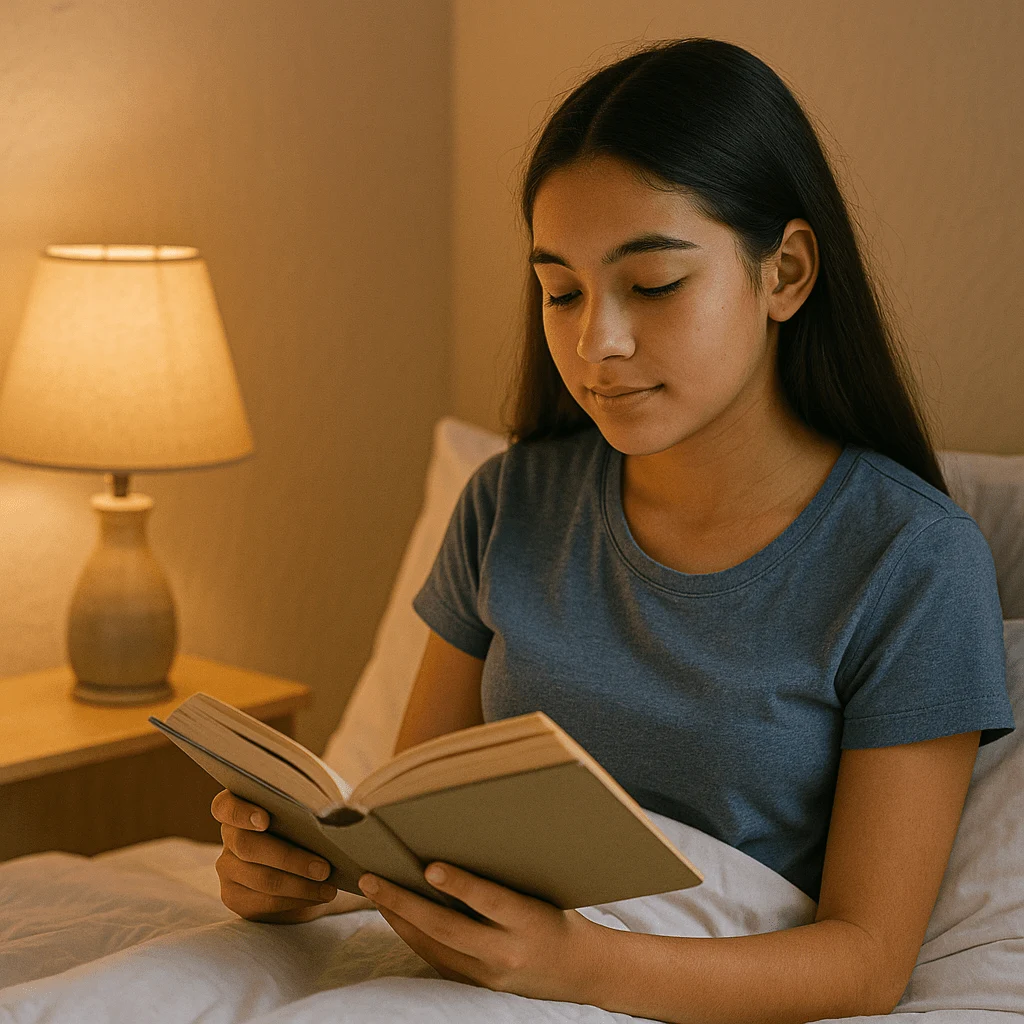
Set aside 20–30 minutes before bed for relaxing activities. A warm shower, stretching, light reading, or calming music can help your body shift into “sleep mode.”
3. Limit Screen Time Before Bed
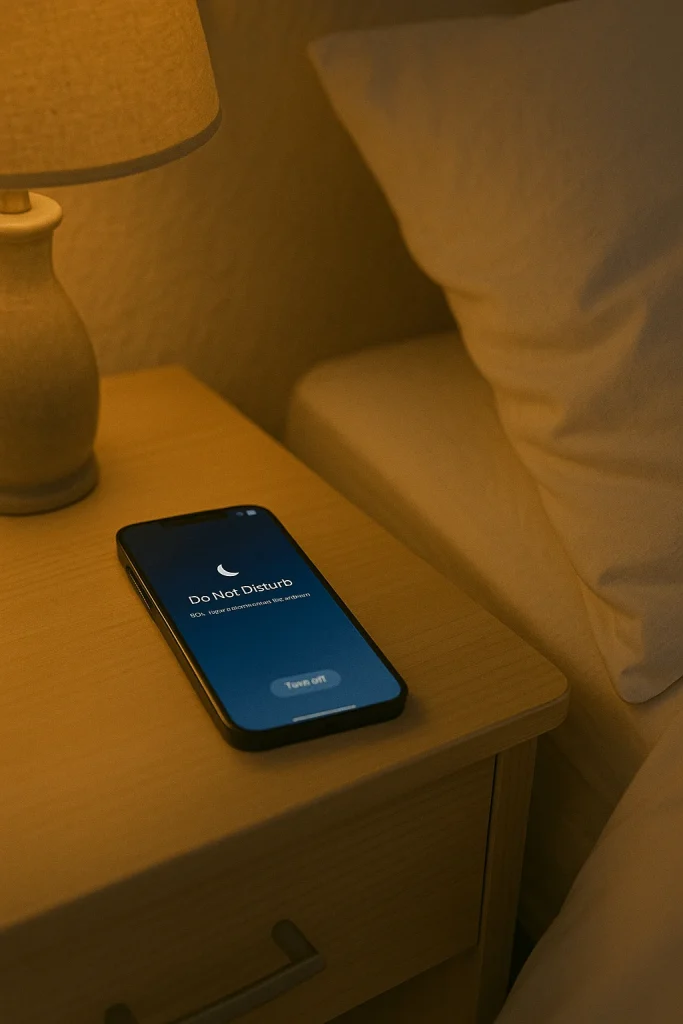
Reduce blue light exposure by turning off devices 30–60 minutes before sleep. If you need a wind-down activity, switch to a podcast, audiobook, or quiet music instead of scrolling.
4. Make Your Bedroom a Sleep-Only Space
Train your brain to associate your bed with rest. Keep work, gaming, and studying in a different spot, and make your sleep space dark, cool, and clutter-free.
5. Watch Your Caffeine and Energy Drink Intake
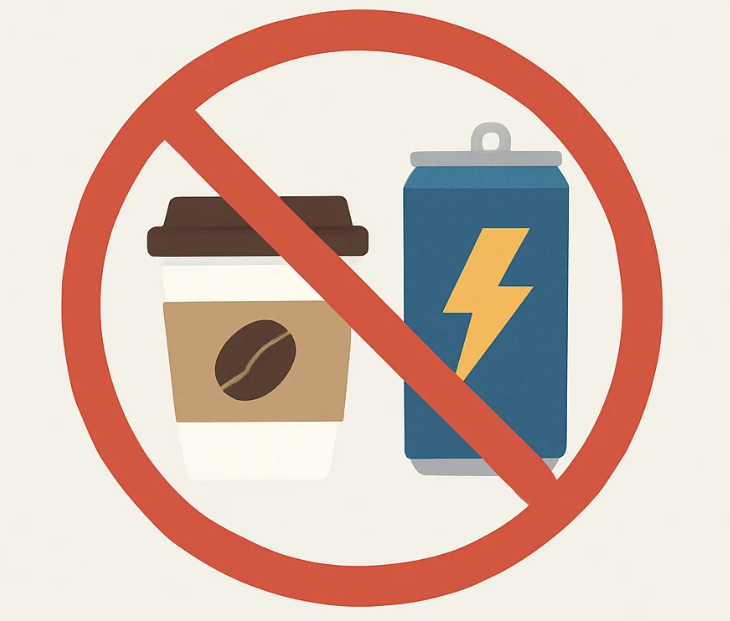
Cut off caffeine after lunch to avoid late-night alertness. That includes coffee, energy drinks, soda, and even chocolate.
Related : 7 Best Herbal Teas for Sleep and Anxiety Relief
6. Balance Homework and Relaxation

Aim to finish heavy studying at least 30–60 minutes before bed. Use that last hour for lighter, low-stress activities like organizing for tomorrow or reading something fun.
7. Get Morning Sunlight
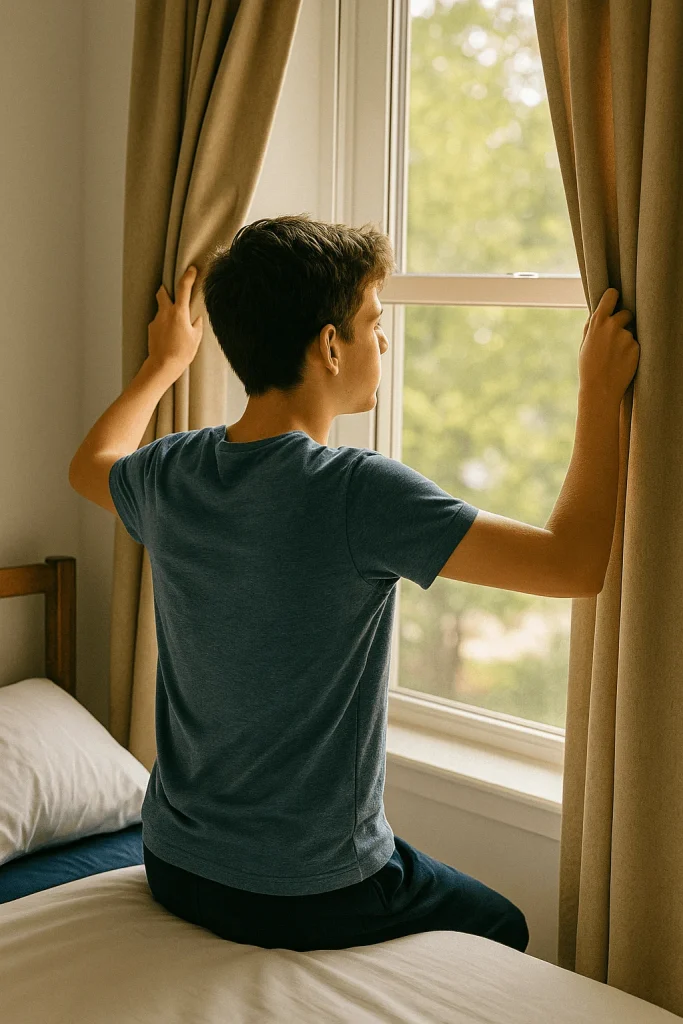
Boost your body clock by getting outside or near a sunny window within 15 minutes of waking. Just 10 minutes of natural light can help you feel more alert and sleepier at night.
8. Stay Active During the Day

Regular movement improves sleep quality and helps you fall asleep faster. Try to get at least 30 minutes of activity most days, but avoid intense workouts right before bed.
9. Avoid Going to Bed Hungry (or Overly Full)

If you need a snack before bed, choose something light and sleep-friendly, like a banana, yogurt, or a handful of nuts. Skip heavy meals close to bedtime to avoid discomfort.
Common Teenage Sleep Problems and How to Fix Them
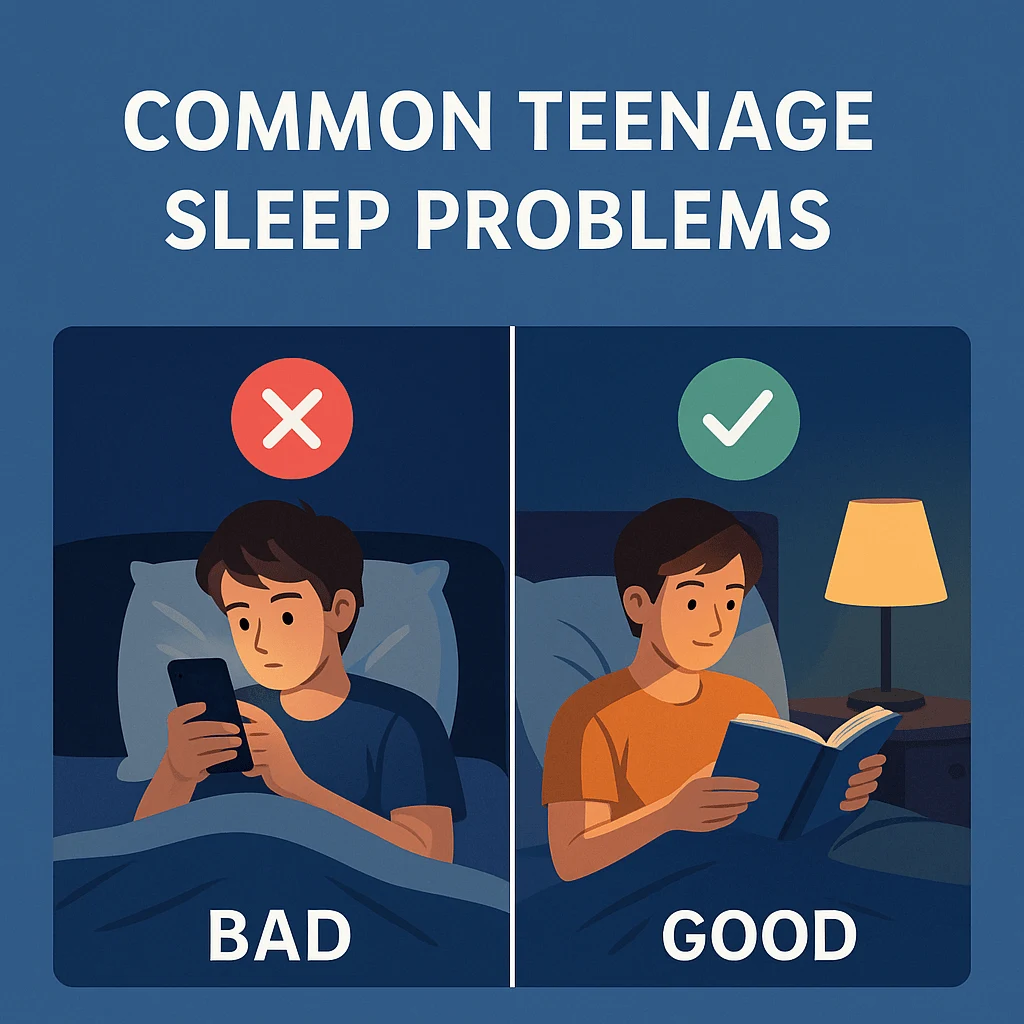
Even with good habits, teenage sleep problems happen. Here’s how to handle the most common ones without overcomplicating your routine.
Late-Night Scrolling or Gaming
Endless notifications and stimulating content can push bedtime later and later.
Try this: Set a device curfew 30–60 minutes before bed, put your phone across the room, or charge it outside your bedroom.
Early School Start Times
Your natural body clock says “sleep,” but your alarm says “wake up.”
Solution: Gradually shift bedtime earlier in 15-minute steps every few nights, and get bright light exposure as soon as possible after waking.
Stress and Overthinking
School, friendships, and social media drama can make it hard to switch off at night.
Better approach: Keep a notepad by your bed to jot down worries or next-day tasks, then use breathing exercises or gentle stretches to relax.
Caffeine Overload
That afternoon soda, coffee, or energy drink might still be in your system at midnight.
What to do: Limit caffeine to mornings only and swap afternoon drinks for herbal tea or water.
Weekend Sleep Swings
Sleeping in for hours on weekends can throw off your weekday rhythm.
Quick fix: Keep weekend wake-up times within an hour of your school-day schedule. If you need extra rest, take a short 20–30 minute nap instead of a long morning lie-in.
Related : 7 Powerful Breathing Exercises for Better Sleep You Can Try Tonight
When to Seek Help

Most teen sleep struggles improve with consistent habits, but sometimes there’s an underlying issue. If you’ve tried these tips for a few weeks and still can’t sleep well, talk to a parent, school nurse, or doctor.
Watch for signs like:
- Loud snoring, gasping, or pauses in breathing during sleep
- Constant daytime sleepiness despite a full night’s rest
- Struggling to stay awake in class or during quiet activities
- Persistent mood changes, anxiety, or depression
Getting help is a smart step toward feeling better, thinking clearer, and having more energy for the things you love.
Bottom Line:
Improving your sleep doesn’t mean flipping your routine upside down. It’s about small, realistic changes — a calmer bedtime, a consistent wake-up, or a little morning sunlight. Over time, these habits build a strong foundation for deeper, more refreshing rest.
If you’re a teen (or the parent of one), remember: sleep hygiene for teens isn’t about strict rules — it’s about creating healthy habits that support better mood, sharper focus, and healthy growth. Start with one or two changes from this list and stick with them for a week.
Tonight, choose your first step — maybe turning your phone off 30 minutes earlier or getting sunlight first thing tomorrow. Notice how you feel after a few days. Your future self — alert, energized, and ready for anything — will thank you.

